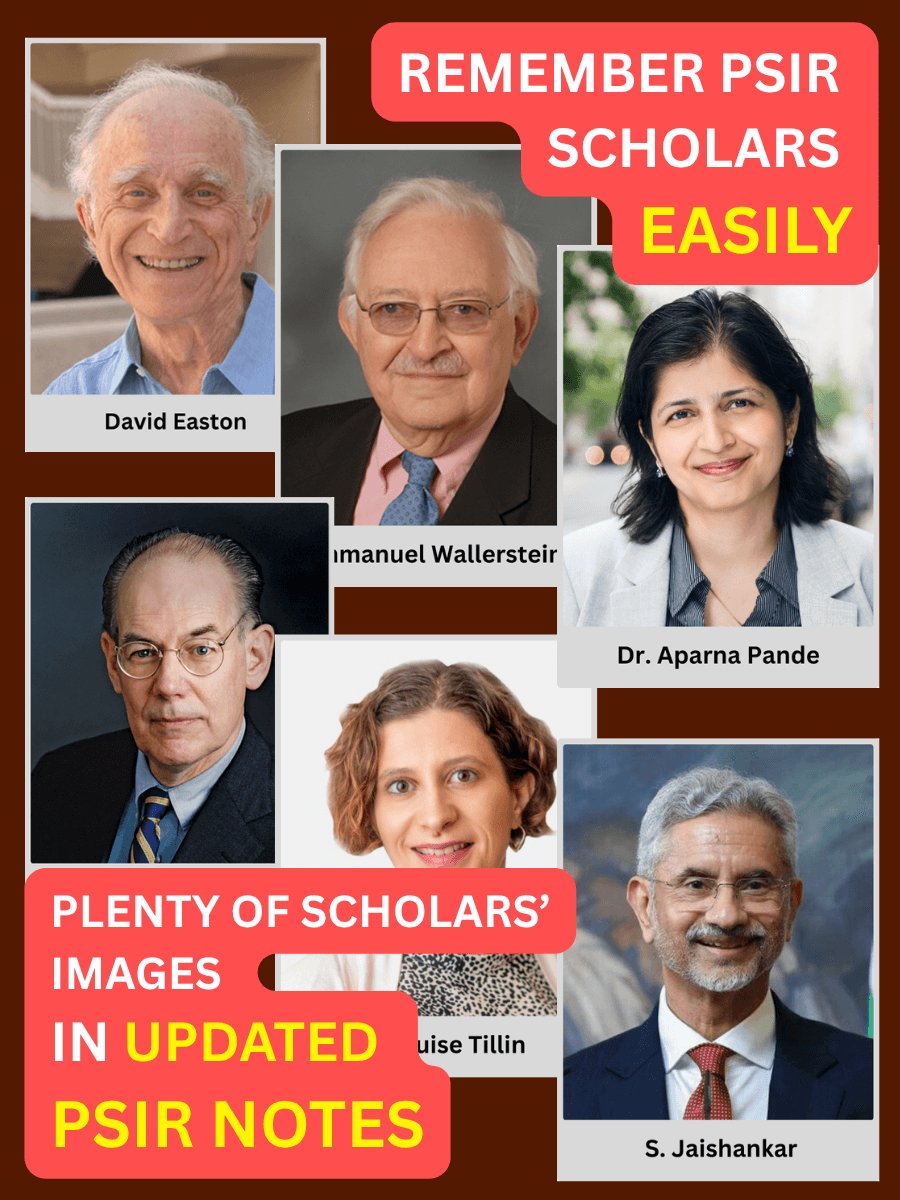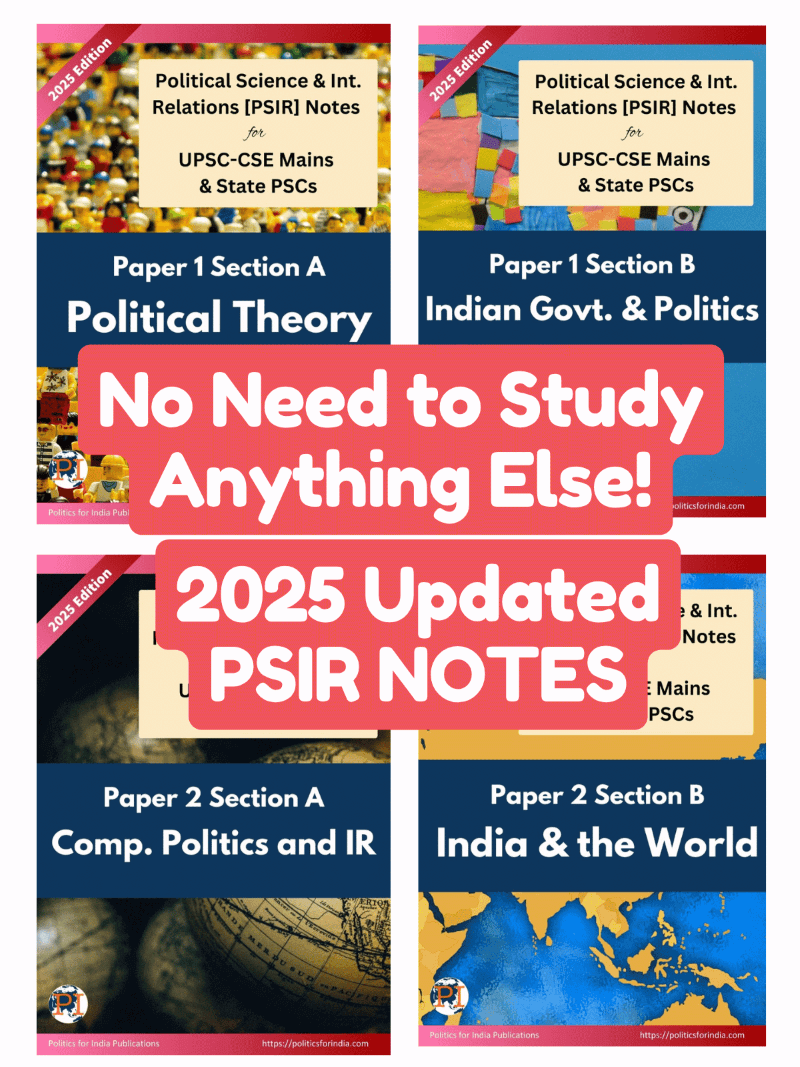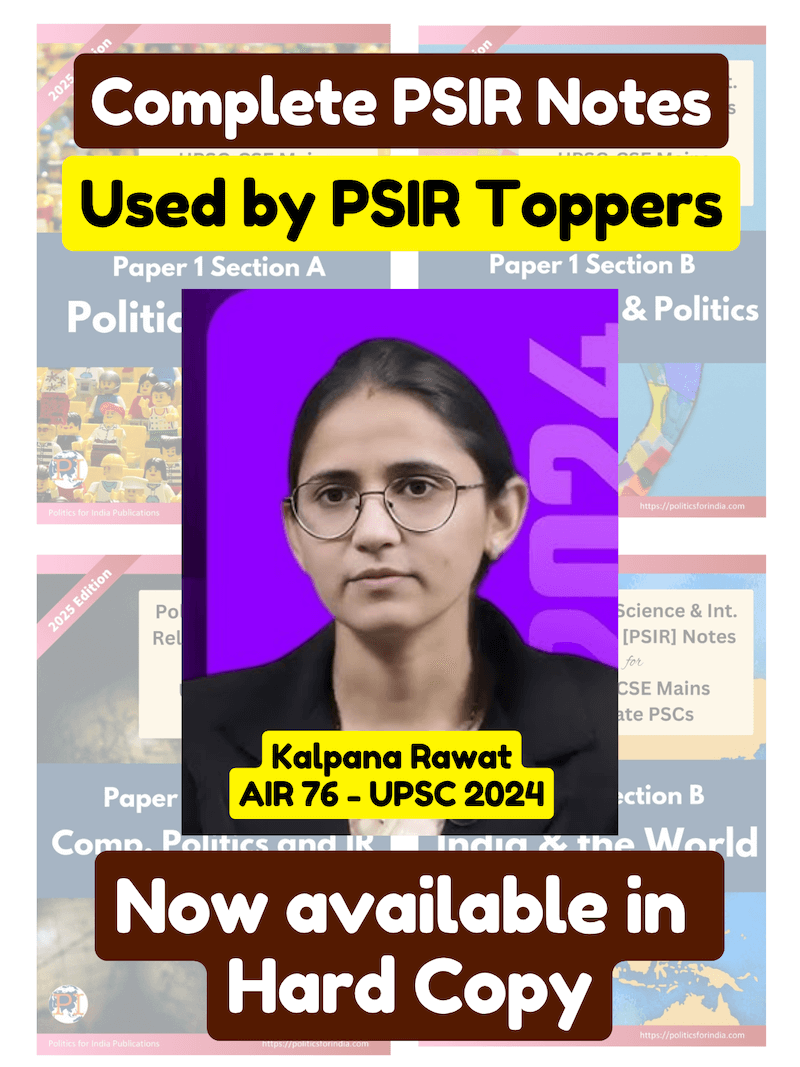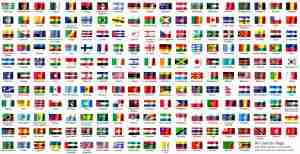1] Introduction to Globalization
Put simply, globalization is often defined as compression in time and space. It can also be called as stretching of social, political and economic activities across national boundaries so that the event in one part of the world also affects other regions.
While some scholars define globalization as ‘accelerating pace of global interactions facilitated by innovation in communication and transportation technology’, other call it ‘Growing collective awareness of a common ‘social sphere’.’
Globalization is often seen as a modern development, driven by advanced technology and multinational corporations. However, the phenomenon of global interconnectedness is not new. Long before the rise of modern nation-states, ancient trade routes like the Silk Road and Indian Ocean maritime networks connected distant civilizations. Empires such as the Roman, Mauryan, Cholas actively fostered such exchanges through conquest and diplomacy. Yet, the earlier form of globalization was different. It was slower, localized, and largely mediated by rulers, traders, and religious institutions.
A] Three Waves of Globalisation
First Wave (1450–1850): This phase was initiated by European explorations and colonial expansions. There were even early multinational companies such as British and Dutch East India Companies. This period saw the establishment of trade routes and the exchange of goods, ideas etc. between continents. This phase was laid the foundations for industrial revolution.
Second Wave (1850–1945): This was characterised by the height of European imperialism, industrial revolution and technological advancement like railway, telegraph etc. It witnessed significant migration and the spread of Western institutions and technologies. This phase was market-driven, with a significant shift in speed, scale, and economic integration.
Third Wave (Post-1960s): Marked by the rise of multinational corporations, and technological innovations. This phase has led to an unprecedented level of global interconnectedness, often referred to as the era of ‘hyper-globalisation’.
The current phase of globalization is characterized by instantaneous digital connectivity, primarily driven by social media and advanced communication technologies. This era has transformed the world into a “global village,” a concept introduced by Marshall McLuhan in 1964.
B] Engines Driving Globalisation
Technological Advancements: The revolution in information and communication technologies (ICT) and transportation has drastically reduced barriers to global interaction.
Economic Imperatives: Capitalist economies seek new markets and avenues for profit maximisation. It drives investment, and production networks across borders.
Political Dynamics: The promotion of liberal democratic values and free-market policies by influential states e.g. by USA and UK. It also provides a normative framework supporting globalisation.
C] Dimensions of Globalisation
Economic Globalisation: This can be characterised by the expansion of multinational corporations (MNCs), liberalised trade regimes, integrated global markets, and transnational production networks. Capital, goods, and services move across borders with unprecedented ease, reshaping national economies.
Military Globalisation: It involves the global spread of military technologies, arms trade, and the proliferation of weapons of mass destruction (WMDs). Further, non-state actors, such as terrorist organisations challenge traditional state-centric security paradigms.
Legal Globalisation: Marked by the development and influence of transnational and international legal frameworks (treaties, conventions etc.) in areas like trade, human rights, environment etc.
Ecological Globalisation: Reflects the interconnectedness of environmental issues, such as climate change, ozone layer depletion, and rising sea levels. Environmental challenges transcend national borders, necessitating global cooperation and agreements like the Paris Climate Accord.
Cultural Globalisation: Denotes the spread and exchange of cultural elements, leading to both homogenisation (e.g., global popularity of certain brands and media) and heterogeneity (e.g., fusion cuisines, hybrid cultural expressions). Global media and the internet play pivotal roles in this process.
Social Globalisation: Encompasses the movement of people (migration), the rise of global civil society, and the activities of international NGOs. These social flows influence labour markets, cultural landscapes etc.
D] Key Terms
1] Globalisation
is often described as the compression of time and space, primarily driven by technological advancements. It signifies the emergence of a global society where shared values, cultures, and concerns transcend national boundaries. The traditional significance of territorial borders diminishes, as states are no longer the sole actors.
2] Internationalisation
Internationalisation means countries are working together more than before—trading with each other, signing agreements, and joining international organisations like the UN or WTO.
Even though they are cooperating, each country still keeps full control over its own borders and laws. The country remains the main player. So, internationalisation is about growing connections between countries, but without giving up their independence.
3] Regionalisation
Regionalisationis a localized phenomenon. It pertains to the interactions and collaborations among neighbouring states within a specific geographical area, such as Europe, South America, or South Asia. This process is often facilitated by shared histories, cultural ties, economic interests etc. Institutions like EU, ASEAN, BIMSTEC exemplify regionalisation.
4] Westphalian World Order
The concept of the Westphalian world order originates from the Treaty of Westphalia (1648), signed after the Thirty Years’ War in Europe. It established foundational principles of international politics, which remain influential even today. The core elements include:
- Territoriality – The world is divided into discrete political units (states), each with clearly defined territorial borders.
- State Sovereignty – Within its territory, a state possesses supreme authority, both political and legal. It is not subject to any higher power in domestic matters.
- State Autonomy – Each state has the right to conduct its internal affairs without external interference. This principle underpins the idea of non-intervention in international law.
These principles continue to form the legal and political foundation of international relations, including its mention in UN Charter. However, the pressures of globalisation have significantly transformed their operation.
2] Effects of Globalization
Time–Space Compression: The information and communication revolution has erased time lags in the flow of news, capital, and ideas. What happens in one part of the world is instantly visible and influential globally.
Rise of Global Civil Society: The global flow of ideas have contributed to the sentiment of global citizenship. There is cross border mobilization as we witnessed in recent Israel war with various news covering the hardships of Gaza victims. There is a growing presence of transnational NGOs, advocacy networks, social movements etc. across state boundaries.
Emergence of a Global Culture: A shared global culture, often shaped by Western norms and lifestyles, is visible in cities across continents. Malls, multiplexes, fast food chains, and global fashion brands contribute to a common cultural landscape.
Cultural Homogenization and Loss of Diversity: What is promoted as global culture is largely a projection of Western values and consumerism. In this process, indigenous traditions, languages, and social norms are being eroded or marginalized—raising concerns of cultural imperialism.
Clash of Civilizational Values: The idea that globalization signals the “end of ideology” is misleading. While Western liberal norms dominate global discourse, rising Asian powers continue to assert distinct models rooted in ‘Asian values’—emphasizing order, family over individual freedoms. This ideological divergence may deepen in a multipolar global order.
—
Erosion of Sovereignty: The world economy is more interlinked than ever before. National economies are deeply influenced by multinational corporations (MNCs), foreign investments (FDI/FII) and global consumer behaviour. States can no longer exercise absolute control over their economies, as key drivers lie beyond national boundaries.
Crisis of Accountability: As MNCs, INGOs, and supranational bodies grow in power, the question arises: who holds them accountable? Unlike elected governments, these actors often operate across borders with limited transparency and no direct public scrutiny.
Globalization and Capitalism: Marxist scholars argue that globalization is not a neutral or inevitable process—it represents the latest phase of global capitalism. The idea that states are powerless in the face of global markets is a constructed narrative, to justify deregulation, and the erosion of sovereignty in weaker states.
Uneven Development and Rising Inequality: The benefits of globalization have been highly uneven. Large parts of the Global South remain trapped in poverty or resource dependency. Liberalization has also led to greater internal inequality within nations, especially in developing countries.
Integration of Markets and Labor: Globalization has enabled movement of goods, services, labour etc. across borders. Outsourcing, offshoring, and the emergence of global value chains have reshaped production and employment worldwide.
Labour Exploitation and Race to the Bottom: In pursuit of cheap labour and relaxed regulations, MNCs often shift production to countries with poor labour rights. This promotes a global ‘race to the bottom’ in wages and working conditions, undermining local workers and unions.
—
Access to Knowledge and Innovation: Through globalization, even developing countries can now access cutting-edge research, educational resources, and medical technologies. Platforms for open knowledge sharing have expanded intellectual and scientific collaboration.
Scientific and Technological Divide: Although science and technology have been key drivers of globalization, their benefits are not evenly distributed. Rich nations use technological advances to consolidate their dominance, while poorer regions struggle to access or adapt to them. This has enabled more systematic exploitation of natural and human resources in the Global South.
Dark Side of Global Connectivity: Not all global flows are benign. The unregulated nature of the internet has facilitated transnational crime, online radicalization, digital surveillance, and abuse of privacy. Globalization has thus expanded both opportunity and threat.
—
Erosion of Democratic Space: In many underdeveloped countries, economic policies are increasingly shaped not by local democratic debates, but by global investors, credit rating agencies, or international institutions. This weakens public participation and trust in democratic governance.
Global Governance and Cooperation: Institutions like the UN, WTO, WHO, and regional blocs like the EU or ASEAN enable states to collaborate, resolve disputes, and set global rules on trade, health, and security—creating a thin but growing layer of global governance.
Global Nature of Contemporary Problems: Issues such as climate change, pandemics, terrorism, cybersecurity threats, and financial crises transcend national borders. No single country can tackle them alone, making global cooperation and institutions increasingly necessary.
Environmental and Social Externalities: Globalization has led to overconsumption, industrial pollution, and unsustainable use of natural resources, particularly in the developing world. Environmental costs are often externalized onto weaker nations, while stronger states push for green transitions without addressing historical responsibility.
Why globalization has disadvantages?
One of the fundamental issues with globalisation lies in the absence of a centralised global authority. This vacuum allows powerful states to dominate international affairs. These states are armed with superior military capabilities, advanced technology, and have significant economic influence. In the absence of a ‘global policeman’ or binding international constitution, these dominant nations unilaterally set agendas, often sidelining the interests and sovereignty of weaker states.
This dynamic perpetuates a system where the strong imposes their will, leading to exploitation of weaker states. It undermining the principles of equity and justice that globalisation purports to uphold.
3] Globalization and Sovereignty
Globalisation has profoundly reshaped the concept of state sovereignty. Daily, over $7.5 trillion circulates through global foreign exchange markets. No government can remain entirely insulated from the pressures of speculative capital. The 1992 sterling crisis exemplifies this, where the British government was compelled to devalue the pound and abandon its economic strategy due to sustained attacks from currency speculators.
Further, Transnational Corporations (TNCs) have emerged as dominant actors in the global economy, accounting for nearly 40% of global output and 80% of world trade, including a significant share of international investments. Their economic clout enables them to influence decisions about production, employment, and technology flows across borders. The 1997 Asian Financial Crisis vividly illustrated the dangers of over-reliance on volatile foreign investment, leading to economic slowdown.
Yet, this does not signify the end of the state. In this transformed context, sovereignty is not eroded but redefined. It is no longer solely about supreme authority within territorial borders but is exercised as a bargaining resource in transnational rule-making processes.
Interestingly, in a complex interdependent world, the role of the state has increased. At times, even to pursue domestic goals—economic stability, public health etc. states need to engage in multilateral cooperation. However, this also leads to compromised state autonomy, presenting a trade-off between effective governance and self-governance.
This evolving sovereignty can be characterized as “pooled”, “shared”, or “divided” authority. Public power is now exercised across multiple levels. This renders the classical Westphalian model of indivisible, exclusive sovereignty largely obsolete. What we observe is a “diffusion of sovereignty”, where power and legitimacy are distributed among a network of actors.
A] Scholarly Perspectives on Globalization and Sovereignty
Susan Strange argues that globalisation represents a “retreat of the state”. The diffusion of power in the world economy diminishes state authority. She emphasizes the growing influence of global financial markets and non-state actors, suggesting that states are increasingly unable to control economic outcomes even within their territories. These global actors operate beyond the regulatory reach of individual states, affecting their sovereignty.
Stephen Krasner introduced the concept of “organised hypocrisy” in sovereignty. Krasner suggests that the traditional notion of absolute sovereignty has always been more of a normative ideal than a practical reality. He contends that globalisation has not fundamentally altered state sovereignty since states have historically tolerated breaches of sovereignty when it served their interests.
4] Globalisation and Global Politics
Globalisation has brought a significant shifts in the way global politics functions. It has challenged the established ideas of power, and legitimacy. Several critical issues emerge when examining global politics in the age of globalisation.
A] Double Democratic Deficit
In an interconnected world, states engage with international actors—such as MNCs, international organisations, foreign governments etc. However, this often compromises their domestic decision-making autonomy.
At the same time, the global environment is marked by high inequality and a lack of democratic legitimacy. In international institutions the decision-making power is disproportionately concentrated and is not democratic. Hence, democracy suffers at two levels:
- Domestically, when governments are forced to compromise their promises due to international pressures.
- Globally, where institutions of global governance themselves are not run on democratic principles.
This twin erosion of democratic control at both levels is what scholars refer to as the double democratic deficit.
B] Implications for Sovereignty
Globalisation has altered the meaning of sovereignty. While states still claim supremacy within their territories, the reality is complex. They must increasingly comply with international norms, multilateral treaties, and economic interdependencies, which limit their unilateral decision-making.
The ability of states to pursue independent domestic policies is increasingly constrained. Many decisions are influenced by global market forces.
C] Post-Westphalian Order
Territoriality: While borders remain formally relevant, their importance has declined in practice. Institutions like the European Union have weakened the traditional significance of national frontiers through shared governance, open borders etc. Further, the rise of digital platforms, digital goods etc. challenges the idea of territorial control.
State Sovereignty: Sovereignty is no longer absolute or exclusive. States must navigate a web of international treaties, norms, and institutions that limit their ability to act independently. Sovereignty has become relational and negotiated, rather than supreme and static.
State Autonomy: In many areas, states are no longer the sole decision-makers. Multinational corporations may control key sectors of the economy, and digital platforms operate beyond any single state’s jurisdiction
5] Perspectives on Globalisation
Globalisation is a complex and evolving phenomenon. The scholars from different schools of thought offers a distinct lens to understand globalization.
A] Realists
Realists argue that globalisation has not altered the fundamental structure of international relations, which remains centred on sovereign nation-states. While economies and societies have become interconnected, the behaviour of states continues to be shaped by the pursuit of power and survival.
The core principles of anarchy, balance of power, and military strength still define international politics. Globalisation has changed markets, not geopolitics.
B] Liberals
Liberals, on the other hand, see globalisation as a transformative force. For them, it signals the ‘end of history’, a phrase popularised by Francis Fukuyama. Globalization, shaped by neoliberalism represent the final stage of human political development. Liberals emphasise the role of civil society, international organisations, NGOs etc. The state is no longer a hard shell billiard ball, instead, international relations resemble a cobweb of interdependence (Josph Nye).
C] Marxists
Marxists present a critical view of globalization. They do not regard globalisation as a new or neutral process, but as the latest phase of international capitalism. Globalisation perpetuates inequality and serves the interests of the bourgeois class in the developed world. Far from creating a level playing field, it reinforces the divide between core and peripheral countries (Immanuel Wallerstein).
D] Constructivists
Constructivists offer a different kind of analysis. For them, globalisation is not an external, fixed force. Rather, it is shaped by human ideas, identities, and interactions. They argue that “globalisation is what states make of it”, echoing Alexander Wendt’s famous view on anarchy. Constructivists believe that globalisation can take different forms depending on how actors interpret and engage with it. Thus, it is a socially constructed and malleable process.
6] Responses to Globalization
A] Western Dominance
Despite globalization being “sold” as a win-win for all, the system has long been dominated by the West. A primary pillar of this dominance is the US dollar’s role as the world’s reserve currency. The dollar’s ubiquity in trade and as the store of value gives the US a unique lever of power. As of today (2025), around 60% of global foreign exchange reserves are held in USD, with the euro a distant 20%.
This simply means the US can run large deficits and still have others accept its currency. Moreover, key international transactions – from SWIFT financial messages to IMF emergency lines – often run through US-controlled systems. This underpins America’s ability to use unilateral sanctions as a geopolitical tool. This financial weaponization is one aspect of what scholars Farrell and Newman term the “weaponization of interdependence” – turning the networks of globalization into tools of coercion.
The Western bloc has similarly leveraged other chokepoints (like high-tech patents, or internet infrastructure) to advance its strategic interests.
Such unilateral actions have contributed to a legitimacy crisis in the global order. Many countries observe that while Western nations championed free trade and rules when it suited them, they have at times flouted rules or twisted them. These double standards erode the moral authority of Western leadership.
Within global institutions, Western dominance is seen in the slow pace of reform in Bretton Woods governance as well as the stalling of WTO’s development agenda, and its dispute resolution mechanism.
Furthermore, the 2008 global financial crisis, which originated in the US, dealt a blow to the West’s credibility. It revealed regulatory failures in the heart of global finance. It also hurt millions in developing economies who had no hand in causing it. This fuelled arguments that the Western-designed globalization was unstable and unfair.
B] Backlash Against Globalization
We are witnessing a backlash against globalization within Western countries themselves. Large segments of the population came to view globalization as illegitimate or at detrimental to their well-being. By the 2010s, populist movements in the US and Europe were decrying free trade deals, and immigration policies. The Brexit referendum of 2016 and the election of Donald Trump reflects a rejection of globalization by those who felt left behind (e.g. manufacturing workers, rural communities). Thus, the very architects of globalization is facing a crisis of confidence at home, as inequality have risen and industrial jobs moved abroad. The “liberal international order” started to be questioned not just by revisionist powers, but by its own citizenry.
On the other hand, China has benefitted most from globalisation. Consequently, it is pitching strongly against protectionist moves of USA. It has even shown willingness to be a next world leader.
C] Effect of Pandemic
The COVID-19 pandemic delivered a big shock to globalization trend. It highlighted the downsides of overly extended supply chains in times of crisis. The pandemic, together with rising geopolitical tensions, has accelerated shifts away from pure neoliberalism toward a more protective stance in many nations.
One trend is protectionism’s revival. Governments are reconsidering what goods are too critical to rely on imports for. “Reshoring” (bringing manufacturing back onshore) and “friend-shoring” (diversifying supply chains only to trusted countries) have entered the policy vocabulary, indicating a partial unwind of hyper-globalization. Apple shifting its assembly to India can be cited as an example of friend-shoring.
While the digital economy has boomed post Covid, this new frontier is also contested. Countries are imposing data localization laws citing privacy or security. Discussions are underway in fora like the WTO on e-commerce rules and taxation of digital products.
D] Trade Wars
Another salient feature of the post-2016 era has been trade wars, most notably the U.S.–China trade conflict. Starting in 2018, the US imposed tariffs on roughly half of Chinese exports, and China retaliated. This marked the first major breach in the prevailing free-trade regime. Trump 2.0 repeated this in 2025. While a tentative truce has reached, complete normalization is unlikely. The overall effect is that the predictability of the trading system has decreased.
E] Globalization 4.0
The ideology of pure neoliberalism has certainly been tempered. Policymakers now talk about “building back better”, resilient, and inclusive globalization. These shifts suggest a potential new consensus that balances efficiency with security and equity.
World Economic Forum calls it “Globalization 4.0” – integration with more safeguards. Others see it as the end of the high tide of globalization, a move into a more fragmented regionalism or bipolar blocs (a US-led and China-led sphere). It’s too early to say, but clearly the trajectory of globalisation is not linear.
In the span of roughly 75 years since Bretton Woods, the world moved from tight capital controls and fixed exchange rates, to a freewheeling global market ideology, and now into a more guarded global economy with power politics back on stage.
Dani Rodrik’s warning of a “globalization trilemma” (that democracy, national sovereignty, and hyper-globalization cannot all coexist fully) seems more pertinent than ever. The post-COVID era might herald a new pragmatic globalization: one that is more regional, more digital, and with more guardrails.
















Hi Admin,
Your content especially in Response to Globalization part is exceptionally well and written in dynamic context. While reading it, I found it more relatable to current ongoings and exemplary in nature.
I really appreciate the content being provided.
Oh.. thank you for the kind words Akhilesh.. we did update it in May 2025.